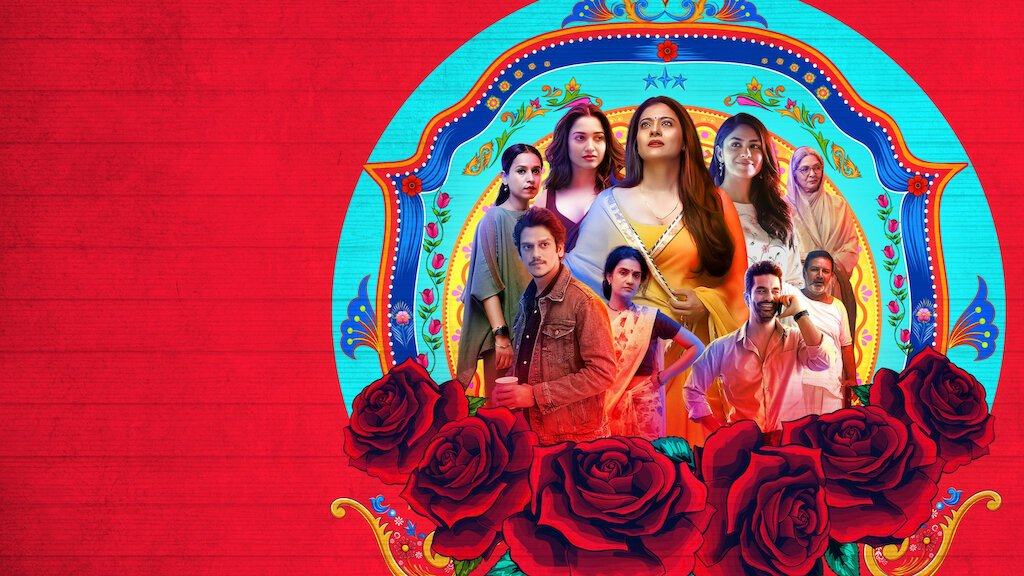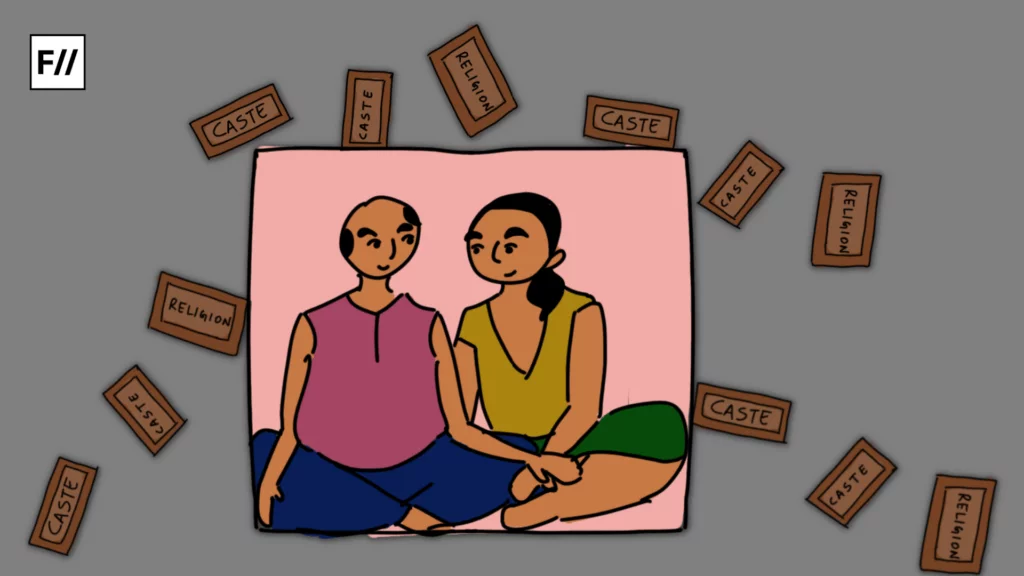Sex, as a term, is not thrown around casually in Indian households and its mention is often accompanied by disgust, humiliation, or shame. Lust – its salacious yet euphemistic counterpart — is more open-ended and can be laden with interpretations of humour, artistic discourse, and more in our familial settings. But Lust Stories 2 takes that open-endedness several notches higher in an attempt to perhaps break new ground but ends up digging its own grave in the process. The only legacy it leaves behind to cherish is that of Konkona Sen Sharma’s commentary on class, desire, power, and voyeurism in the masterclass-short The Mirror.
Sen Sharma peeks into the life of a Bandra-elite, Isheeta, who encounters her domestic worker, Seema Didi, having sex on her bed and begins to awkwardly enjoy the voyeuristic pleasure. Isheeta’s blinding migraines form a core symbol in the short, and the cinematography with discomforting close-ups and shaky frames makes the audience experience Isheeta’s pain, almost bringing us closer to her in her abject loneliness.
Sen Sharma peeks into the life of a Bandra-elite, Isheeta, who encounters her domestic worker, Seema Didi, having sex on her bed and begins to awkwardly enjoy the voyeuristic pleasure. Isheeta’s blinding migraines form a core symbol in the short, and the cinematography with discomforting close-ups and shaky frames makes the audience experience Isheeta’s pain, almost bringing us closer to her in her abject loneliness. She cries when she masturbates. Her friend, Sammy, seems to be another obligation instead of a confidante and speaking with her only makes Isheeta more frustrated than fulfilled. In medias res, this story gives us no context to her loneliness and we must accept that it just is.
Seema, played by a stunning Amruta Subhash, erupts into bitter and much-needed honesty that reflects Sen Sharma’s maturity as a filmmaker who is completely aware of the status quo she operates in. This is an India where domestic workers keep our houses spotless but their very existence in our shared spaces – living room sofas and society benches — is deemed a blot on our pristine lifestyles. They must crawl into our private spaces like rats, and leave as feebly and quietly. It is a timely intervention that does not feel like a frail attempt at moralising but emerges as a delicious plate you want to devour every little bit of. This is evident in the ongoing Twitter discourse from a housing society in India’s tech capital.
While Tillotama Shome, Amruta Subhash, the background score, and the cinematography come together skilfully to interrogate the gandagi, the disgust, associated with both class and desire, the film does seem to be dragged on slightly longer than needed for my taste. Seeing Isheeta and Seema navigate their way around the power dynamic and intimacy that has shifted momentously between them is a sight to behold, and the short certainly has the craft to make it work. But a more crisp ending before this navigation unfolds – it would have made the climax soar higher albeit in a more cynical direction perhaps.
Contrasting this mature examination of what it means to be gazed at, Ghosh’s short – Sex with Ex is content fixating on Tamannah Bhatia’s physique like a prey. The film is set in a town with abhorrent CGI in the visuals, which barely has functioning phones but gives takeaway coffees.
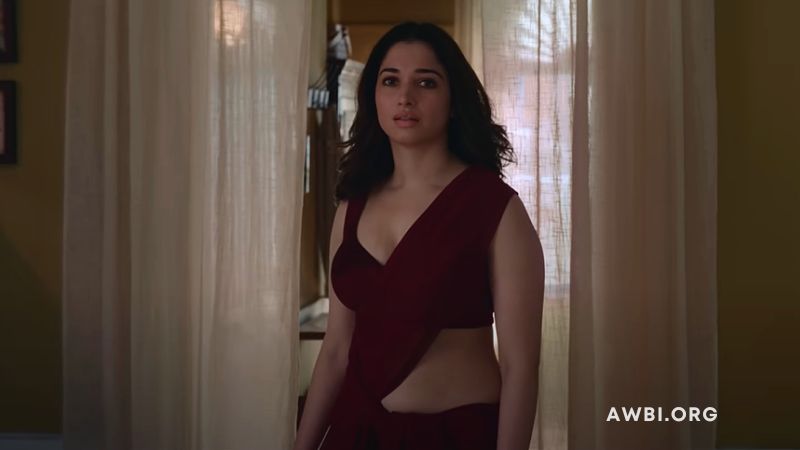
It is laughable from the get-go, and the dialogue goes into ‘tell-but-never-show’ territory of childish exposition to explain that a pregnancy test facing upwards, not down, is the smoking gun. It is like a car wreck (and not the one that gets Vijay Varma in this mystical town) that you cannot look away from because you see the end coming at least two miles back. Varma is a stylish actor who makes sleazy look second nature to him, and Bhatia is comfortable in her skin with this act, but the script does not want them to do anything substantial. But the silliness on screen still makes for an entertaining watch, if not a thoughtful one.
Balki’s and Sharma’s segments made me wince — the former with its senseless and immature preachiness that is a complete disservice to Neena Gupta’s potential, and the latter with its gore sensationalisation of STD and abuse. Linking sex with a stigmatised disease and with abuse seems to be counterproductive in an anthology that markets itself as a celebration of the taboo – sex, lust, and desire.
This is more praise than can be offered to the other two shorts in this anthology. Balki’s and Sharma’s segments made me wince — the former with its senseless and immature preachiness that is a complete disservice to Neena Gupta’s potential, and the latter with its gore sensationalisation of STD and abuse. Linking sex with a stigmatised disease and with abuse seems to be counterproductive in an anthology that markets itself as a celebration of the taboo – sex, lust, and desire.
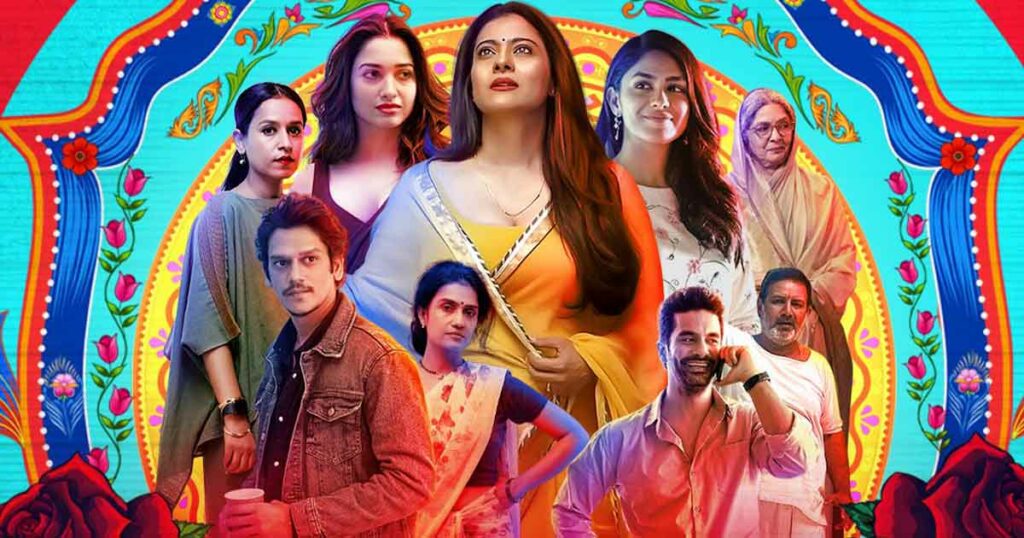
The final segment of Lust Stories 2, directed by Amit Sharma, starring Kajol and Kumud Mishra in lead roles, not only fails to add meaningful nuance to the taboo of lust, but it takes the discourse several steps backward. I held on for dear life, hoping, anticipating, and willing a clever twist to salvage the incoherent and disconnected bits in that segment. We have a degenerate drunkard who is also a known rapist, a former sex worker dreaming of a better life for her son, and the son in question who must grapple with the simple sin he cannot undo — he is his father’s offspring.
While flawed tremendously, both the segments by Ghosh and Sharma have something to look forward to or enjoy. That’s why, for the life of me, I cannot decipher how the producers placed R. Balki’s shot into the first segment, when it is the dullest of the lot. Daadi, played by Gupta, talks only about sex and orgasms and she does so through awkward euphemisms — premarital sex is a “test drive” and orgasm is tantamount to the eruption of ‘Mount Fuji’. These facepalm moments aside, what got me frustrated in this segment is the fact that this short fails to recognise that these characters should exist as people even before the camera is pointed at them.
The Gangs of Wasseypur fashion of eve-teasing and lurking men comes across without context in this segment. You search for meaning and have nothing but Kumud Mishra’s stellar performance to remember from this piece. The pensiveness accorded to Kajol’s expressive eyes by her experience cannot salvage this mess; she and Mishra both deserve better than this. I don’t wish to spoil the ending but be prepared to be biologically, psychologically, and culturally offended by the ignorance and callous storytelling on display here.
While flawed tremendously, both the segments by Ghosh and Sharma in Lust Stories 2 have something to look forward to or enjoy. That’s why, for the life of me, I cannot decipher how the producers placed R. Balki’s short into the first segment, when it is the dullest of the lot. Daadi, played by Gupta, talks only about sex and orgasms and she does so through awkward euphemisms — premarital sex is a “test drive” and orgasm is tantamount to the eruption of ‘Mount Fuji’. These facepalm moments aside, what got me frustrated in this segment is the fact that this short fails to recognise that these characters should exist as people even before the camera is pointed at them.
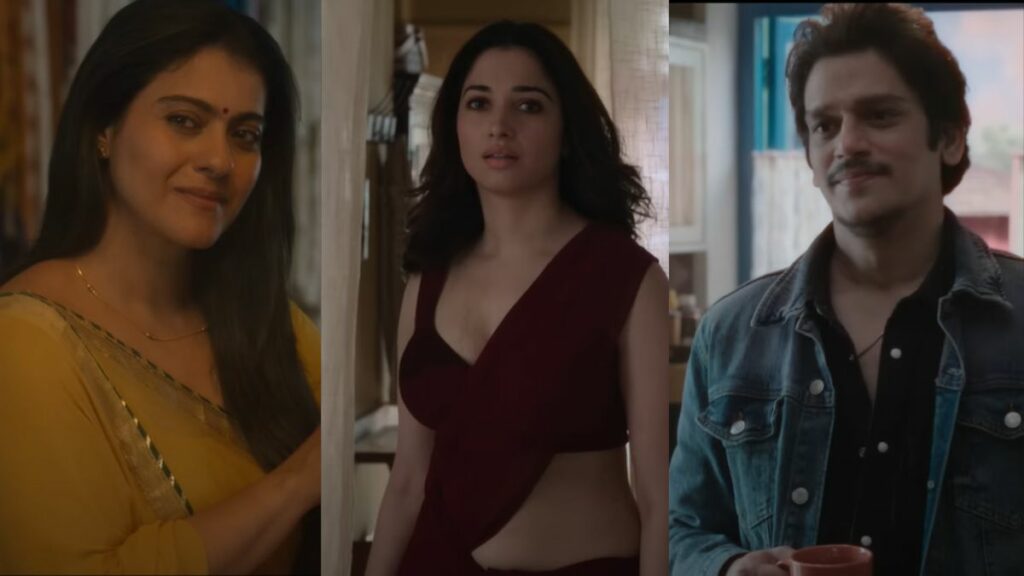
For instance, had this head-covering, mantra-chanting, saree-clad grandmother never mentioned sex casually and openly earlier? If not, why has she chosen the convenient set-up of the arranged marriage to come across as free-thinking?
Would the grandmother have the same eagerness to encourage her granddaughter into a ‘test drive’ if this were an inter-caste, inter-religion, or homosexual relationship that may not necessarily desire to culminate in a traditional marriage? These are all pivotal questions that the film would have had time to mull over and build interesting material from, if it accorded its characters some dignity and realism, or respected them enough to offer them a thoughtful background.
Would the grandmother have the same eagerness to encourage her granddaughter into a ‘test drive’ if this were an inter-caste, inter-religion, or homosexual relationship that may not necessarily desire to culminate in a traditional marriage? These are all pivotal questions that the film would have had time to mull over and build interesting material from, if it accorded its characters some dignity and realism, or respected them enough to offer them a thoughtful background.
Neena Gupta’s performance is jarring and painful to get through because of the embarrassing dialogue accorded to her, and Mrunal Thakur — as the granddaughter who must take this test drive — does nothing but giggle, feign surprise, and blush. She has a sense of charm even with the weak material, but it is not enough to make us care, let alone be invested, in her sexual dalliances or yawny arranged marriage.
As a format, anthologising stories of desire in a society that barely has a single language to even acknowledge — it seems like a hill any filmmaker will be rewarded by climbing. But for R. Balki, Sujoy Ghosh, and Amit Ravindernath Sharma, this is a sorely missed opportunity as their shorts entangle the possibilities of lust with forced and jarring progressiveness, laughable twists, and plainly offensive stigmatisation.

Their convoluted gaze made me wonder why so many of my talented writer friends don’t have Netflix projects if this is the stuff that gets green-lit and produced. Although, if there is one thing I will keep watching these anthologies for — it’s to strengthen my annual petition that Konkona Sen Sharma must direct and share more of her empathetic and tasteful stories with the world.
